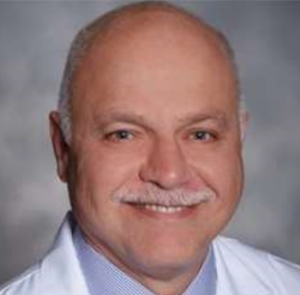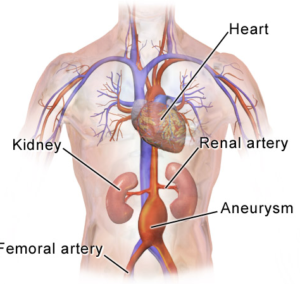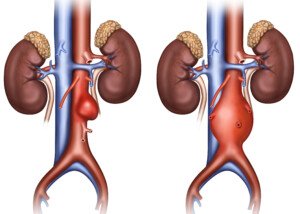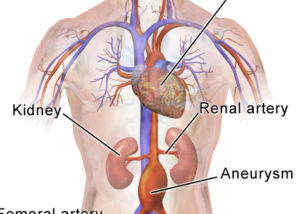A leading vascular surgeon discusses beta blockers can shrink an abdominal aortic aneurysm.
Many people with abdominal (and thoracic) aortic aneurysms wonder if taking beta blockers will shrink the bulge.
A beta blocker belongs to a class of drugs designed to lower high blood pressure.
Do beta blockers have a shrinking effect on an aortic aneurysm?
“With regards to beta blockers, there is no data that I am aware of that helps shrink abdominal aortic aneurysm,” says Seyed-Mojtaba Gashti, MD, a board certified vascular surgeon with Broward Health Medical Center in Florida.
“There is, however, data that indicates that AAAs expand at a slower rate in patients who are on beta blockers than those who are not.”
In general, an aortic aneurysm expands at the rate of 3 to 5 millimeters per year.
This doesn’t sound like a lot, but in aneurysmal terms, it’s very relevant.
When an abdominal aortic aneurysm reaches a minimum size, surgery is strongly recommended to repair the problem.
Until then, the patient practices “watchful waiting” which includes yearly scans, and blood pressure control, since higher blood pressure produces increased tension in the inner wall of the aorta – which can tear or rupture the aneurysm.
Dr. Gashti continues, “According to LaPlace’s law, arterial hypertension (high blood pressure) increases aortic wall tension and has been related to an increased rate of expansion and rupture.
“So since beta blockers lower blood pressure and the rate of the aortic pressure wave, they should inhibit AAA expansion and therefore rupture.”
An abdominal aortic aneurysm will never shrink spontaneously. There are no known drugs that can produce a shrinking effect. The only means of repair are surgery or stent grafting.
An AAA doesn’t necessarily keep getting bigger and bigger; some do remain small, but there is no way to tell if this will be the outcome; hence, the patient must maintain watchful waiting and regular imaging for life unless surgical repair is done.
Usually an abdominal aortic aneurysm does not cause symptoms, and most are detected by accident when the patient is being imaged for an unrelated issue.
A person can go his entire life with an AAA and never know it and live to a ripe old age.
Unfortunately, once one is discovered by accident, the knowledge of its existence changes things dramatically in that the patient now must make sure his blood pressure is consistently low, usually must take beta blockers to help ensure this, and must avoid heavy straining weightlifting.

Dr. Gashti specializes in the diagnosis and treatment of vascular disease including abdominal and aortic aneurysm.
 Lorra Garrick has been covering medical, fitness and cybersecurity topics for many years, having written thousands of articles for print magazines and websites, including as a ghostwriter. She’s also a former ACE-certified personal trainer.
Lorra Garrick has been covering medical, fitness and cybersecurity topics for many years, having written thousands of articles for print magazines and websites, including as a ghostwriter. She’s also a former ACE-certified personal trainer.
.



























